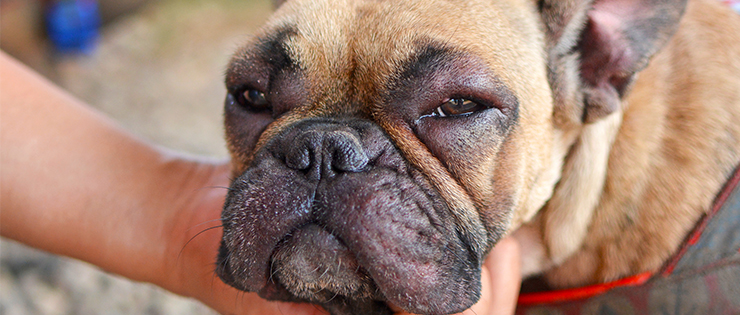
Whilst all of us hope that we never have to worry about administering First Aid to our pets, the reality is that at some point, we may indeed have to. Some of you reading this may have already been faced with a time in which your pet was ill, which required you to implement some first aid skills to keep them safe, or even save their life!
I will never forget when Chester, one of my Staffordshire Bull terriers was stung by a bee many years ago. He experienced a near fatal allergic reaction, collapsing within 5 minutes of the sting, and then suffering huge hives all over his body soon after. At the time, I was unsure of how to manage his response, nor did I have an antihistamine medication. Needless to say, it was one of the worse and most stressful days of my life. Has something similar happened to you?
After that incident with Chester, I decided that I wanted to ensure I was skilled with the basic abilities to manage my pets’ wellbeing, if and when they needed medical attention.
Here are some basic guidelines that are essential knowledge to any pet owner:
Burns
If your pet has been burnt, apply cool running water over the area for 7-12 minutes and seek veterinary assistance as soon as possible. Do not hold a cold towel over the area, or cover the area, as this may increase the damage of the burn.
Bites
Generally, bites require veterinary treatment. If your pet experiences an allergic reaction such as; general distress, panting, hives, trouble breathing, bloody urine/faeces, unconsciousness, or anxiety, then take them to a vet immediately.
If you suspect your pet has been bitten by a snake, always try to identify the type of snake and call your vet to ensure they have the anti-venom in stock. Keep your pet as still as possible during transit and try to remain calm yourself.
Wounds
If your pet is bleeding, clean the area with saline and apply pressure to the area, until it stops bleeding. Wrap a firm bandage around the site and seek veterinary treatment.
Poisoning
If your pet has been poisoned., contact your vet immediately, as there are a range of treatments that depend on the type of poison. It is always worthwhile having a 24 hour emergency vet’s phone number handy at home and in your phone, in case your regular vet clinic is not open.
Seizures
As with human seizures, we can’t get our pets to ‘snap out’ of them. The only management we can apply is to ensure that the environment they are in is safe and that there are no surrounding dangers. Seizures can occur for a multitude of reasons, it is imperative that you seek veterinary advice immediately.
Since that awful day, when Chester was stung by the bee, I have carried a first aid kit in my car for my dogs. You might like to do the same.
First aid kit
- A couple of bandages of differing widths (this will depend on the size of your dog)
- Antiseptic such as betadine
- Tweezers
- Scissors
- Saline tubes
- A towel
- Some sterile gauze
- Tape for bandage adhesion
- The numbers and addresses of emergency vets in my State
- Disposable aseptic gloves
Whilst keeping a first aid kit is worthwhile, it is also valuable to engage in a pet first aid course. There are many available, some run by shelters and others through vet clinics. Despite the value of learning how to apply first aid to your pet, it can rarely overturn the value of seeking veterinary advice. Always make sure you consult a vet when you can and if you are concerned.
Hopefully, none of you ever have to use your first aid kit, or implement your first aid skills with your pets, but it is invaluable to have the skills up your first aid sleeve, in case you ever need to use them.